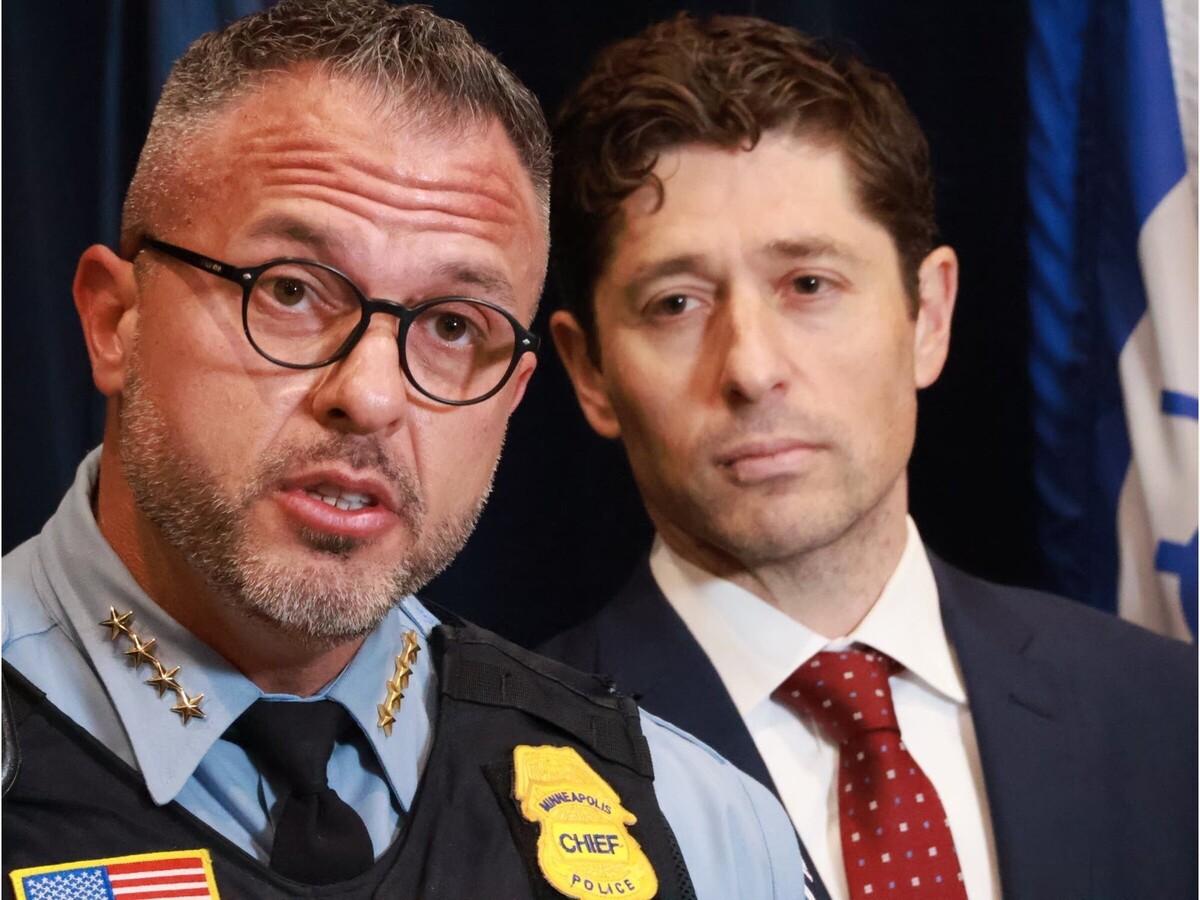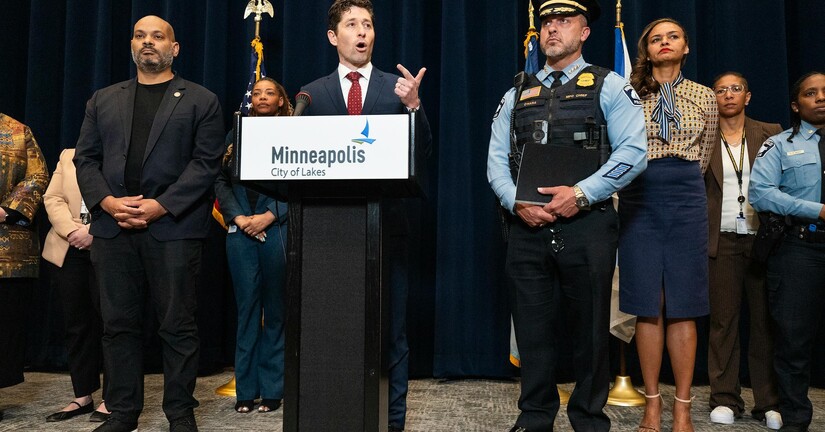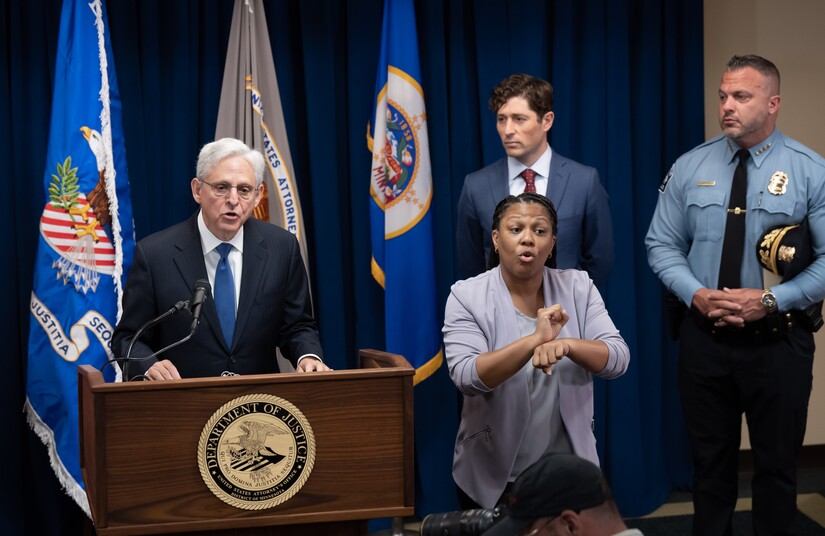Image


The Minnesota Department of Human Rights says its consent decree with the Minneapolis Police Department "isn't going anywhere" amid reports on Wednesday that the U.S. Department of Justice is starting the process of dismissing the federal decree proposal.
CBS News reports the department is "ending Biden-era investigations and proposed police consent decrees" in Minneapolis and Louisville, Kentucky.
The news comes just four days before Minneapolis marks five years since George Floyd was murdered by now-former officer Derek Chauvin, which sparked global protests, riots and a racial justice movement. It was also the major catalyst for police reform in Minneapolis and beyond.
The federal agreement states Minneapolis police will require officers to "promote the sanctity of human life as the highest priority in their activities," and won't allow ethnicity, gender or race to "influence any decision to use force, including the amount or type of force used."
In January, the Minneapolis City Council approved its decree with the Biden administration's department of justice, nearly two years after the police department approved a first-of-its-kind settlement agreement with the Minnesota's human rights department.
On Wednesday, Rebecca Lucero, commissioner of the state's human rights department, said the state's decree will stand irrelevant of what happens on the federal level.
"While the Department of Justice walks away from their federal consent decree nearly five years from the murder of George Floyd, our Department and the state court consent decree isn't going anywhere," Lucero said. "Under the state agreement, the City and MPD must make transformational changes to address race-based policing. The tremendous amount of work that lies ahead for the City, including MPD, cannot be understated. And our Department will be here every step of the way."
Lucero's office underlined that the decree won't be removed until the state's judiciary "determines that the City and MPD have reached full, effective, and sustained compliance with the terms of the agreement."

Minneapolis Mayor Jacob Frey and Police Chief Brian O'Hara held a joint press conference on Wednesday morning, where each affirmed their commitment to reform.
"Here is the bottom line: We're doing it anyway," Frey said. "We will comply with every sentence of every paragraph of the 169-page consent decree that we signed this year."
O'Hara says his department will go "beyond what is required in any paragraph of any court-ordered reform."
"We will be the best police department in the nation, period," O'Hara said.
The federal decree had been held up in the courts since U.S. Attorney General Pam Bondi took office.

In June 2023, Merrick Garland's justice department released a searing report following its investigation into Minneapolis police practices, saying the department had a pattern of using excessive force, including "unjustified deadly force," which was disproportionately used against the city's Black and Indigenous residents. The police department also discriminated against people of color and residents living with behavioral health disabilities, according to the report's findings.
Both the federal and state decrees require Minneapolis police to meet certain benchmarks before oversight can be eliminated, including use-of-force policy reforms, restricting the use of military-style tactics during protests and a ban on handcuffing children younger than 14.
Bondi's justice department accuses Garland's department of "wrongly equating statistical disparities with intentional discrimination," and relying on "flawed methodologies and incomplete data" while investigating Minneapolis and Louisville police.
"Overbroad police consent decrees divest local control of policing from communities where it belongs, turning that power over to unelected and unaccountable bureaucrats, often with an anti-police agenda," Attorney General Harmeet Dhillon wrote in a statement released on Wednesday.
The justice department also announced its civil rights division will stop Biden-era probes into several other police departments, including in Phoenix, Memphis and Oklahoma City.
Minneapolis has set aside $15 million to meet the demands of the settlement agreement this year and budgeted a total cost of $113 million between 2024 and 2030, so there would be no added cost to taxpayers should city leaders continue to abide by initial reform promises.
The decision to dismiss or proceed is still up to a federal judge.
SOURCE: CBS NEWS MINNESOTA